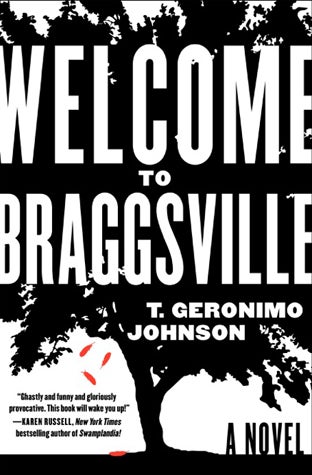Lori Jakiela and T. Geronimo Johnson win Stanford’s 2016 Saroyan Prize for Writing
The biennial literary award given by the Stanford Libraries was awarded to two writers who draw on their personal experiences in their work.
Lori Jakiela and T. Geronimo Johnson, the two winning authors of the 2016 William Saroyan International Prize for Writing, pull from personal and real-world experiences in their literature.
Such a writing technique characterized the award-winning work of the late literary legend Saroyan, for whom the prize is named. The Stanford University Libraries administers the prize every two years.

Lori Jakiela and T. Geronimo Johnson, the two winning authors of the 2016 William Saroyan International Prize for Writing, pull from personal and real-world experiences in their work. (Image credit: L. Jakiela; Elizabeth R. Cowan)
Jakiela’s Belief Is Its Own Kind of Truth, Maybe (Atticus Books, 2015) is the story of one woman’s search for her birth mother coupled with the parallel story of her own motherhood and her own re-making. She explores what it means to be a mother, what it is like to have two very different blood connections and what it means to form a family.
Fritz Kasten, one of the three nonfiction judges, was struck by Jakiela’s work, noting, “It is Lori’s writing that encourages my renewed interest in books of the imagination.”
Kasten, a musician and bibliophile, found Jakiela’s style refreshing and welcomed: “Lori writes with a truly fresh voice, no easy or common accomplishment.”

Jakiela’s poetic prose engages the reader as she maps out her identity and searches to strike a balance between the families she is born into and the other she has made herself.
In the fiction category, T. Geronimo Johnson’s Welcome to Braggsville (William Morrow, 2015) squarely confronts issues of race, privilege and politics in a dark and socially provocative comedy about four University of California, Berkeley, students who stage a dramatic protest during a Civil War reenactment in rural Georgia.
A literary coming-of-age novel for a new generation, Johnson, who is a former Stanford Stegner Fellow and teaches writing at UC Berkeley, combines social insight and satire to illustrate the promise and perils of youthful exuberance while painting an indelible portrait of contemporary America.
Welcome to Braggsville is a national bestseller. In a review, the Associated Press remarked on the book’s relevance to modern day society: “Johnson deftly pokes dark fun at a wide swath of culture, high and low. … But as 21st-century American culture crisscrosses with the nation’s history, Johnson’s story evokes more than satirical humor. A sense of conscience and moral purpose takes shape at the heart of the book.”

Jakiela and Johnson will each receive $5,000 as the award. A reception honoring both winners and their works will be held this fall.
Other finalists included:
- Fiction, Now We Will Be Happy (University of Nebraska Press, 2014) by Amina Gautier and Counternarratives (New Directions, 2015) by John Keene
- Nonfiction, Russian Tattoo (Simon & Schuster, 2015) by Elena Gorokhova and Nagasaki: Life After Nuclear War (Viking, 2015) by Susan Southard
It was a record-setting year for the 2016 Saroyan Prize for Writing. The Stanford Libraries received 361 entries for books published between January 2014 and December 2015.
Sonia Lee, the libraries’ associate director of development and manager of the prize, said she hopes the increasing popularity is indicative of a larger positive trend for literary writing. “We are encouraged by the increasing number of submissions received each year,” she said.
A literary undertaking
William Saroyan became a well-known and beloved literary figure because of his unique free style and his injection of life experiences into his works. The Saroyan International Prize for Writing started in 2003 to commemorate the life, legacy and intentions of the writer and celebrate the publication of stimulating new literary works.
According to Stanford University Librarian Michael Keller, the prize is made possible by the over 200 volunteer readers and judges who engage in the process every two years.
“Many, although not all, volunteers are alumni who are passionate readers and care about keeping the art form strong and well,” said Keller. “Our volunteers make possible this prize, which provides a platform to celebrate new writers, and we are grateful for their participation.”
This year’s distinguished judging panel for fiction included three Stanford alumni who are award-winning authors: Sumbul Ali-Karamali, Heidi W. Durrow and Elizabeth McKenzie. Nonfiction judges were Fritz Kasten; Hank Saroyan, writer, performer and nephew of William Saroyan; and members from the Barron Park Book Group.
The Saroyan Prize was last awarded in 2014, when the fiction prize went to Kiese Laymon for Long Division (Agate Bolden, 2013) and the nonfiction prize went to Margalit Fox for The Riddle of the Labyrinth: The Quest to Crack an Ancient Code (Ecco, 2013).
